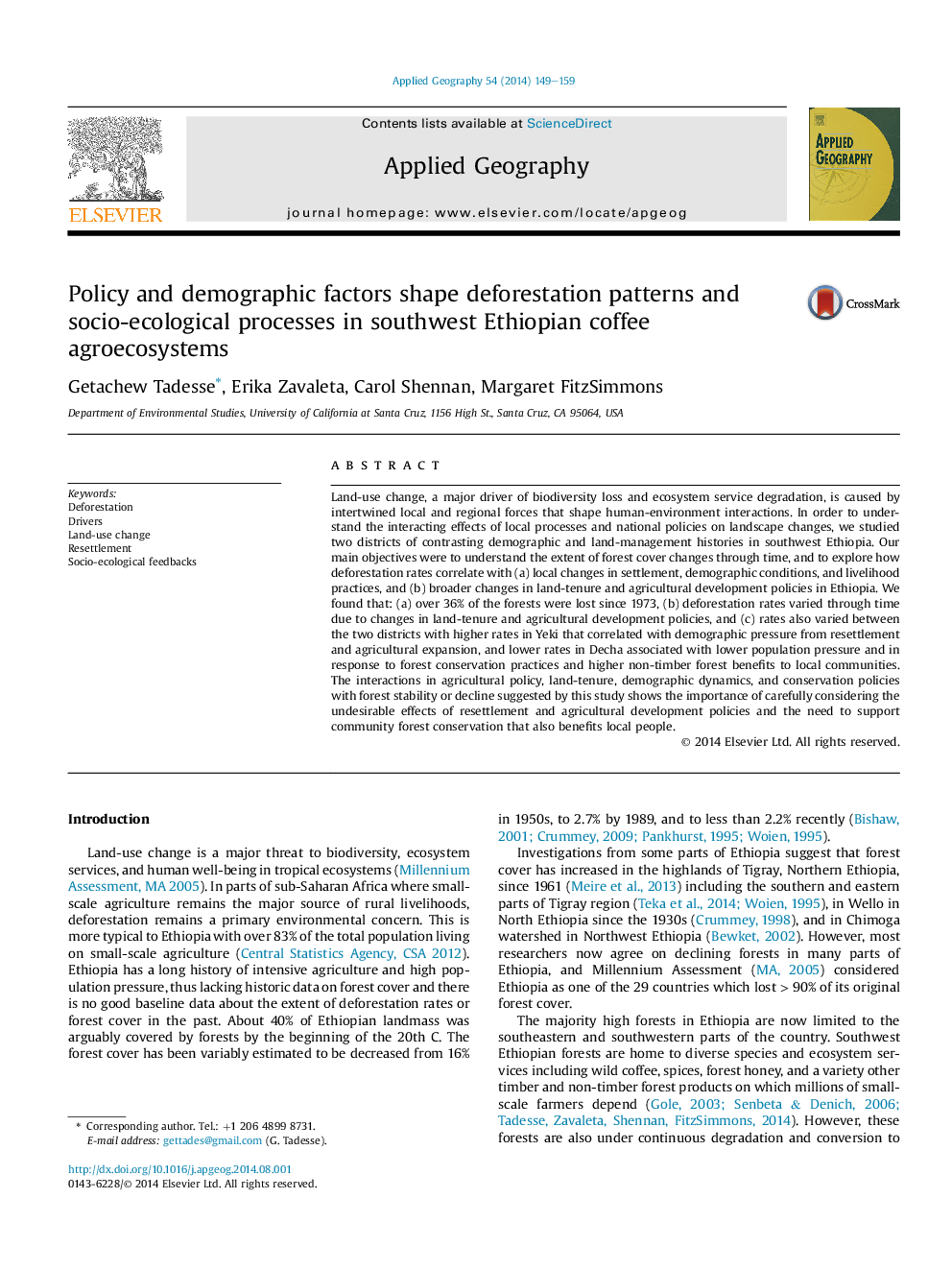| کد مقاله | کد نشریه | سال انتشار | مقاله انگلیسی | نسخه تمام متن |
|---|---|---|---|---|
| 83291 | 158712 | 2014 | 11 صفحه PDF | دانلود رایگان |
• We used remote sensing and surveys to assess deforestation in southwest Ethiopia.
• Geospatial analysis and local perceptions corroborate rapid deforestation.
• Deforestation rates varied in space and time.
• Temporal variations overlapped with land-tenure and agricultural development policies.
• Regional variations correlated with demographic factors and livelihood practices.
Land-use change, a major driver of biodiversity loss and ecosystem service degradation, is caused by intertwined local and regional forces that shape human-environment interactions. In order to understand the interacting effects of local processes and national policies on landscape changes, we studied two districts of contrasting demographic and land-management histories in southwest Ethiopia. Our main objectives were to understand the extent of forest cover changes through time, and to explore how deforestation rates correlate with (a) local changes in settlement, demographic conditions, and livelihood practices, and (b) broader changes in land-tenure and agricultural development policies in Ethiopia. We found that: (a) over 36% of the forests were lost since 1973, (b) deforestation rates varied through time due to changes in land-tenure and agricultural development policies, and (c) rates also varied between the two districts with higher rates in Yeki that correlated with demographic pressure from resettlement and agricultural expansion, and lower rates in Decha associated with lower population pressure and in response to forest conservation practices and higher non-timber forest benefits to local communities. The interactions in agricultural policy, land-tenure, demographic dynamics, and conservation policies with forest stability or decline suggested by this study shows the importance of carefully considering the undesirable effects of resettlement and agricultural development policies and the need to support community forest conservation that also benefits local people.
Journal: Applied Geography - Volume 54, October 2014, Pages 149–159
